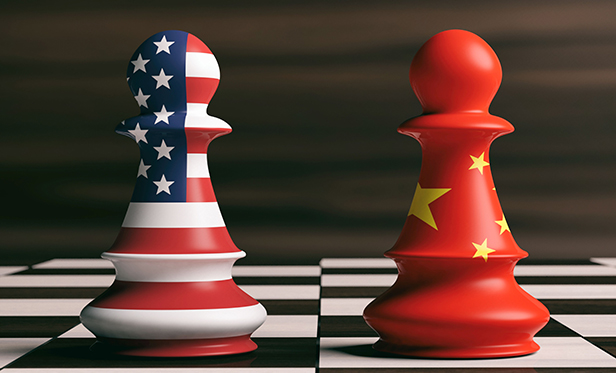
Commerce Secretary Wilbur Ross signaled there's more pain aheadunless China changes its economic system, as the Asian nationrepeated it will never surrender to U.S. trade threats.
|“We have to create a situation where it's more painful for themto continue their bad practices than it is to reform,” Ross said inan interview on Fox Business Network on Thursday. The U.S. willkeep turning up the pressure on China for as long as the countryrefuses to level the economic playing field, said Ross.
|“The reason for the tariffs to begin with was to try andconvince the Chinese to modify their behavior. Instead they havebeen retaliating. So the president now feels that it's potentiallytime to put more pressure on, in order to modify their behavior,”he said.
|President Donald Trump fanned tensions by ordering his tradeoffice to considering imposing a 25 percent duty on $200 billionworth of Chinese goods, up from an initial 10 percent rate. Themove for a higher tariff, which was announced Wednesday, isintended to bring China back to the negotiating table for talksover U.S. demands that China make structural changes to its economyand narrow the U.S. trade deficit. The negotiations broke down lastmonth.
|China's government vowed to strike back against further U.S.actions and said “blackmailing“ attempts would fail. “China isfully prepared and will have to retaliate to defend the nation'sdignity and the interests of the people, defend free trade and themultilateral system, and defend the common interests of allcountries,” China's Ministry of Commerce said in a statementThursday on its website. The “carrot-and-stick” tactic won't work,it said.
|A global stocks selloff moderated in the U.S. early on Thursdayas investors weighed the Trump administration's latest threats tofree trade with strong earnings and optimism about the economy.
||
China Demands Respectful Treatment Before ResumingNegotiations
Along with its pledge to fight back, China also left the dooropen for a resumption of negotiations. “China has consistentlyadvocated resolving differences through dialogue, but only on thecondition that we treat each other equally and honor our words,”the ministry said.
|The U.S. is open to renewing formal negotiations with China,though Beijing must agree to open its markets to more competitionand stop retaliating against U.S. trade measures, according to twosenior administration officials who briefed reporters Wednesday onthe condition of anonymity.
|While the duty on the additional $200 billion of Chinese goodslikely won't be imposed until after a public review ends nextmonth, economists and business groups are already warning thattariffs will disrupt supply chains and push up prices for importedgoods. The Trump administration already slapped duties on $34billion of Chinese goods last month, which prompted immediateretaliation from China, and another $16 billion will likely followin the coming days or weeks.
|The International Monetary Fund has cited escalating tradedisputes as a growing downside risk that's threatening thestrongest global economic upswing in seven years.
|Ross said on Thursday that imposing U.S. tariffs on what wouldadd up to about half of all Chinese imports, which were valued atmore than $500 billion last year, won't cause a major economicupheaval. A 25 percent levy “on $200 billion, if it comes to pass ,is $50 billion a year,” said Ross on Thursday. “$50 billion a yearon a $18 trillion economy” is a fraction of a percent, he said,adding “It's not something that's going to be cataclysmic.”
|The administration last month released a list of thousandsChinese products it wants to slap with an additional 10 percent intariffs, ranging from television components to handbags and seafoodto baseball gloves. The duties could take effect after theadministration draws up its revised, final list of importsfollowing a public comment period. Hearings are scheduled for Aug.20 to 23, and the comment period has been extended to Sept. 5 fromlate August.
|Trump said last month that he's willing to impose tariffs onevery good imported from China, which totaled more than $500billion last year. American companies, as well as industry andconsumer groups, have pleaded with the administration to avoidtariffs, saying they could raise their costs and eventually lead toprice hikes for consumers.
|From: Bloomberg
|Copyright 2018 Bloomberg. All rightsreserved. This material may not be published, broadcast, rewritten,or redistributed.
Complete your profile to continue reading and get FREE access to Treasury & Risk, part of your ALM digital membership.
Your access to unlimited Treasury & Risk content isn’t changing.
Once you are an ALM digital member, you’ll receive:
- Critical Treasury & Risk information including in-depth analysis of treasury and finance best practices, case studies with corporate innovators, informative newsletters, educational webcasts and videos, and resources from industry leaders.
- Exclusive discounts on ALM and Treasury & Risk events.
- Access to other award-winning ALM websites including PropertyCasualty360.com and Law.com.
*May exclude premium content
Already have an account? Sign In
© 2024 ALM Global, LLC, All Rights Reserved. Request academic re-use from www.copyright.com. All other uses, submit a request to [email protected]. For more information visit Asset & Logo Licensing.







